Search Results
Showing results 21 to 40 of 73

Bone Fractures
Source Institutions
Most people break at least two bones in their lifetime. In this activity, learners will use celery stalks to model the many ways that bones can fracture.
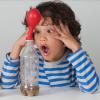
The Gas You Pass
Source Institutions
Although we may not admit it, all humans fart or pass some gas. In this activity, learners make their own model to mimic food passing through intestines and discover what releases gas.

Super Soil
Source Institutions
In this outdoor activity, learners make their own organic-rich soil. Depending on where this activity is done, learners will probably discover that their local soil is low in organic matter.
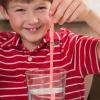
Clogged Arteries
Source Institutions
In this activity, learners explore how eating unhealthy food can damage a heart and arteries.
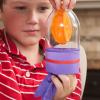
Build a Lung
Source Institutions
Most of the time, we don't have to think about breathing. In fact, you're probably breathing right now without thinking about it!
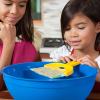
Snotty Nose
Source Institutions
Our bodies produce snot, or mucus, that we blow from our noses. In this activity, learners will create a model of how snot works and will explore how it keeps our bodies healthy.
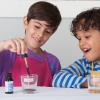
What Does Spit Do?
Source Institutions
Some animals can swallow food whole, but humans have to chew. In this activity, learners will investigate what saliva does chemically to food before we even swallow.
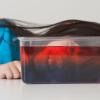
Freezing Lakes
Source Institutions
In some parts of the world, lakes freeze during winter. In this activity learners will explore water’s unique properties of freezing and melting, and how these relate to density and temperature.
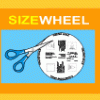
Size Wheel
Source Institutions
In this fun sticker activity, learners will create a size wheel with images of objects of different size, from macroscopic scale (like an ant) to nanoscale (like DNA).

Dip Dip, Hooray
Source Institutions
Lakes, streams and other freshwater bodies are a habitat for lots of living things, big and small.
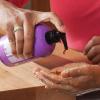
Wash Away Germs
Source Institutions
Many germs spread by our hands, and often times, people don't wash their hands well enough to get rid of germs.
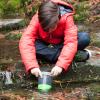
Window Under Water
Source Institutions
Glare from the sun and ripples from the wind can make it hard to see what's below the surface of a body of water.
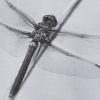
Damsels and Dragons
Source Institutions
In this outdoor activity/field trip, learners conduct experiments to explore where dragonflies and damselflies perch or rest, and how the flies change behavior in reaction to other flies or fly decoys
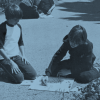
Plant Patterns
Source Institutions
In this outdoor mapping activity, learners explore where plants grow and map plant-distribution patterns.
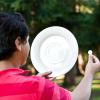
Big Sun, Small Moon
Source Institutions
Learners will explore the concept of angular distance, and investigate why the moon appears to be the same size as the sun during a solar eclipse, despite the sun being much larger.

Cool It
Source Institutions
In this outdoor activity/game, learners use thermometers to simulate how lizards survive in habitats with extreme temperatures.
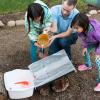
Runaway Runoff
Source Institutions
When it rains, water can collect on top of and seep into the ground. Water can also run downhill, carrying soil and pollution with it.

Trail Impact Study
Source Institutions
In this outdoor activity, learners plan a simple foot path and create an environmental impact study of the natural area where the path would be.

Salt Water Revival
Source Institutions
In this outdoor activity, learners visit the intertidal zone of a rocky coastal site well populated with marine organisms.
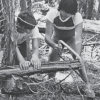
Sawing Away
Source Institutions
In this outdoor activity, learners saw sections from fallen trees, then count tree rings and look closely at patterns of tree growth.
